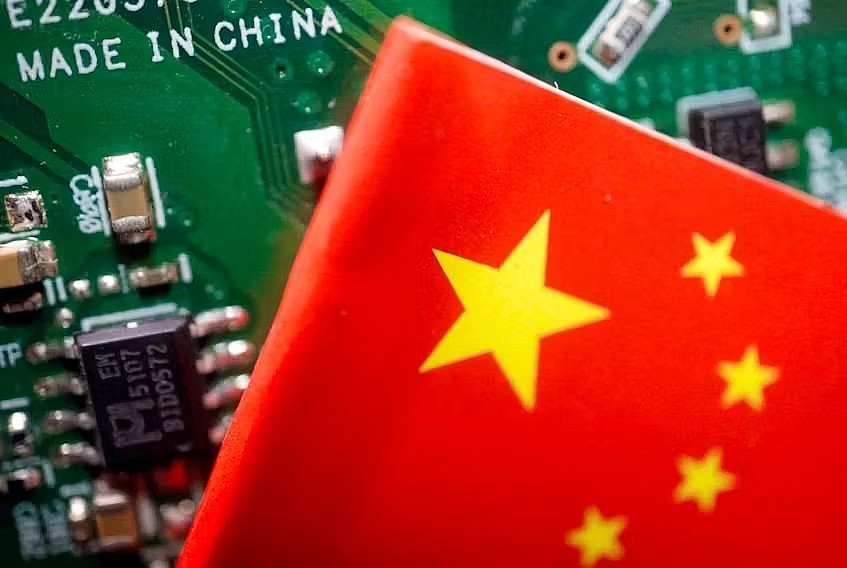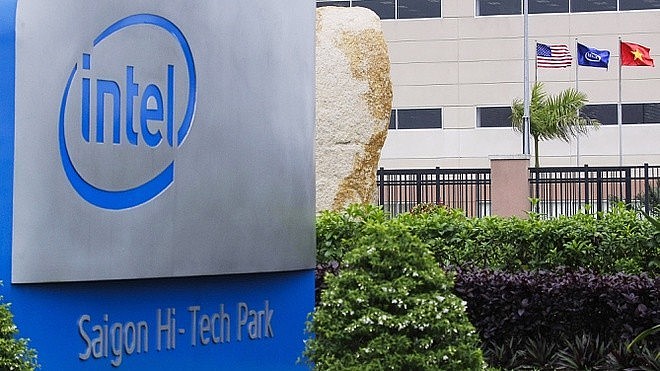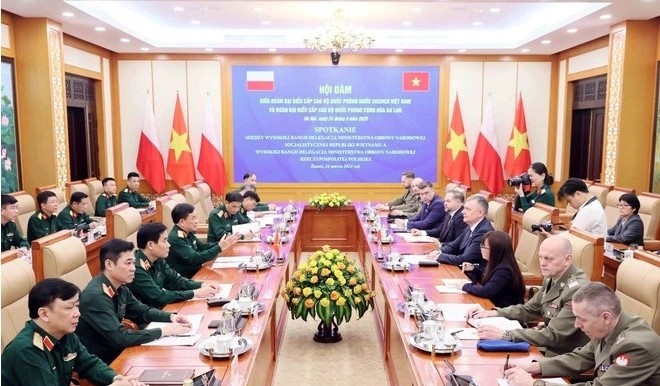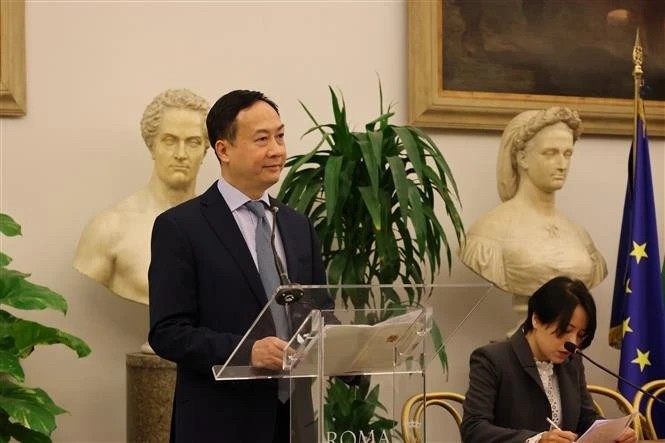Lessons And Opportunities For Vietnam From China's Semiconductor Technology
 |
| China's semiconductor industry is developing rapidly. Photo: Saltwire |
According to a March report from the Semiconductor Industry Association (SIA), China's semiconductor chip sales increased 26.6% over the same period in January, faster than any other country in the world.
According to China's Ministry of Industry and Information Technology, China's total integrated circuit (IC) output in 2023 increased by 6.9% to 351.4 billion units, compared to a year earlier.
In contrast, the number of ICs imported into China fell 10.8% last year, based on data from China's General Administration of Customs.
This development has reflected strong investment efforts from the Chinese government in the semiconductor industry.
According to China's Ministry of Finance, financial spending on science and technology development increased from 832.7 billion yuan (US$115.06 billion) in 2018 to nearly 1.06 trillion yuan (US$146.46 billion) by 2023.
In the future, the country will continue to promote research on breakthrough and advanced technologies, especially in the field of Artificial Intelligence (AI). According to the report, China will also issue long-term treasury bonds in key sectors, especially the technology sector, within the next few years.
The recent rapid growth of China's semiconductor chip industry has also contributed to increasing trade tensions between China and the US.
In the past, the relationship in the semiconductor industry between the US and China was quite close, when China relied heavily on chip technology originating from the US, and US-controlled exports to limit China's technological progress.
However, currently, as the tide has turned, the US is developing new strategies to prevent itself from falling further behind China when it comes to manufacturing.
Potential and lessons for the semiconductor industry in Vietnam
According to Tran Xuan Hoai, Vietnam Academy of Science and Technology, US-China trade tensions are leading to many consequences for the global semiconductor industry.
However, it also brings many opportunities. Specifically, trade tensions may affect chip production activities due to limited access to supply. Furthermore, manufacturing semiconductor products is complex, and comes with huge costs.
A new chip foundry could cost about US$15 billion to US$20 billion, while a chip assembly, packaging, and testing facility could cost US$5 billion to US$7 billion. However, the global semiconductor shortage and growing demand for microchips are likely to spur investment in such high-cost factories.
 |
| Intel company headquarters in Ho Chi Minh City. Photo: Nikkei |
In fact, many FDI enterprises have begun investing in the semiconductor industry in Vietnam. Typically, Intel has a chip assembly and testing factory in Ho Chi Minh City, with current output of up to 3 billion chips.
Because Vietnam does not have financial potential like China, attracting FDI capital is a key issue to develop this industry.
"If Vietnamese people are willing to learn and FDI investors have the goodwill to spread, hopefully after ten years, Vietnamese people can replace over 50% of international experts," Professor Tran Xuan Hoai said.
According to Professor Tran Xuan Hoai, Vietnam has enough technical conditions to start semiconductor projects that are less expensive and easier to implement.
With an investment of less than US$10 million and a small number of personnel, Vietnamese businesses can start designing old-generation chips, or create specialized chips, developing into chip suppliers for cars, weapons, and medicine.
Semiconductor companies in China, Europe, and Russia have also followed this path and achieved success.
In particular, Professor Tran Xuan Hoai emphasized research and human factors. In its March report, the Chinese Government placed attracting and training top scientists as the foundation for future semiconductor industry development.
Similarly in Vietnam, the government has also placed scientific research at the heart of developing the semiconductor industry. In Resolution 144/NQ-CP 2023, the Ministry of Science and Technology was assigned to research plans to build semiconductor laboratories at several large universities, creating the necessary conditions to begin developing this industry.
 | Vietnam, Switzerland Cooperate in Training AI, Semiconductor Chip Human Resources Vietnamese and Swiss higher education institutions signed documents to promote cooperation and improve Vietnamese firms’ human resources quality in the field of artificial intelligence (AI) ... |
| Vietnam, RoK Boost Cooperation in Semiconductor Industry Currently, in the field of semiconductors, Vietnam is emerging as a destination attracting the attention and presence of many of the world's leading corporations from ... |
 | Samsung Supports Vietnam in Semiconductor Engineers Training Deputy Prime Minister Tran Luu Quang received General Director of Samsung Vietnam Choi Joo Ho in Hanoi on March 4. |







